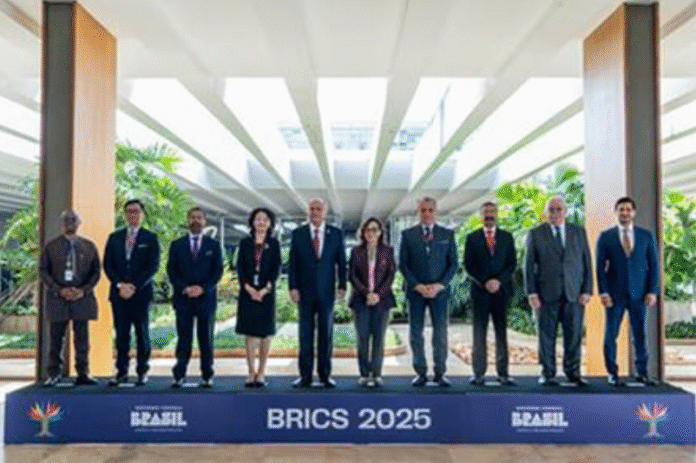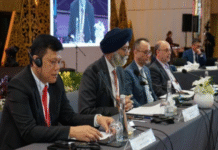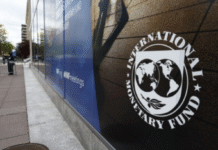New Delhi— India has called for the removal of export controls among BRICS nations, advocating for deeper economic integration and cooperation within the bloc. The appeal came during a meeting of BRICS Trade Ministers held in Brasília on May 21, under Brazil’s presidency. The session was themed “Strengthening Global South Cooperation for More Inclusive and Sustainable Governance,” according to an official statement released Friday.
As India prepares to take over the BRICS Presidency in 2026, it praised Brazil’s solution-oriented leadership in navigating key trade issues during the summit. A significant outcome of the meeting was the endorsement of a joint declaration, along with three annexures: the BRICS Declaration on WTO Reform and Strengthening of the Multilateral Trading System, the BRICS Data Economy Governance Understanding, and the BRICS Trade and Sustainable Development Framework.
These documents collectively underscore BRICS’ commitment to an equitable, inclusive, and rules-based global trading system. The joint declaration notably cautioned against using climate-related trade measures as tools of unjustifiable discrimination or disguised trade restrictions.
Delivering remarks on behalf of Union Commerce and Industry Minister Piyush Goyal, India thanked Brazil for building consensus and welcomed Indonesia’s upcoming entry into the bloc in 2025. India reiterated its support for a fair and transparent multilateral trade order and advocated for a decentralized global trade structure that prioritizes the developmental needs of the Global South.
India also spotlighted the need for comprehensive reforms to the World Trade Organization (WTO), including a permanent solution for public stockholding (PSH) to ensure food security in developing countries. The country promoted its “30 for 30” initiative — a proposal to implement 30 incremental improvements to mark the WTO’s 30th anniversary in 2025.
Representing India at the meeting, Yashvir Singh, Economic Adviser in the Department of Commerce, stressed the urgency of eliminating restrictive trade practices that hinder critical supply chains. He also urged developed countries to facilitate the concessional transfer of Environmentally Sound Technologies (ESTs), supported by sufficient financial resources.
India further highlighted its global sustainability initiative, Mission LiFE, which encourages responsible consumption and a circular economy approach as part of a broader climate equity framework.
With the addition of Indonesia, the BRICS group will expand to 10 members in 2025. The original bloc—Brazil, Russia, India, China, and South Africa—was joined in 2024 by Egypt, Ethiopia, Iran, and the United Arab Emirates. (Source: IANS)







